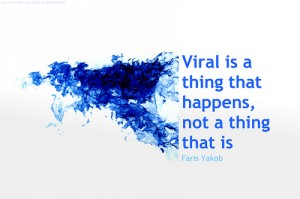 I did something that went viral. It became juicy gossip, a ‘can-you-believe-it’ story.
I did something that went viral. It became juicy gossip, a ‘can-you-believe-it’ story.
It was stupid and made people feel bad. I felt bad. I embarrassed dear friends, hurt old colleagues and gave some enemies fodder to slander. Very bad indeed.
‘Viral’, not the good kind as in ‘going viral; more like a 36 hr flu that people hate but don’t put much meaning into. No one died or lost a limb and most have much more interesting things to think about…hopefully.
I learned that
- Messages get lost unless carried by the audience.
- Interpretations drown messages. If people choose misinterpretation, good luck getting back on point.
- People hear messages they expect no matter what you say.
- Delivery becomes the message.
- Poisoning the well works!
“Those who know do not speak. Those who speak do not know”
Lao Tzu in Tao Te Ching.
But when does silence support atrocity? At some point, silence can foster dysfunction. Society improves by speaking truth to power.
- How can we encourage ‘people of good conscience’ to speak out against oppressive social structures and tyrannical thinking?
- How can we empower those best able to speak to issues while protecting them from pillory and calumny?
- Maybe hard questions need, once again, the cloak of anonymity and pseudonyms?
Silver Lining
Neuroplasticity says old dogs can learn new tricks (see The Mind And The Brain: Neuroplasticity and the Power of Mental Force). We embrace mistakes – eternal possessions – and the humility in forgiveness given and received. We appreciate relationship and the confidence of those who know us, imperfect frail people.
So, do not lust for going viral…even just a little bit viral. You might get what you wish for.
“All tyranny needs to gain a foothold is for people of good conscience to remain silent.”
Thomas Jefferson.
PS Please stop reading…nothing more to see here…really boring stuff…
(photocredit: jessicaannmedia.com)


